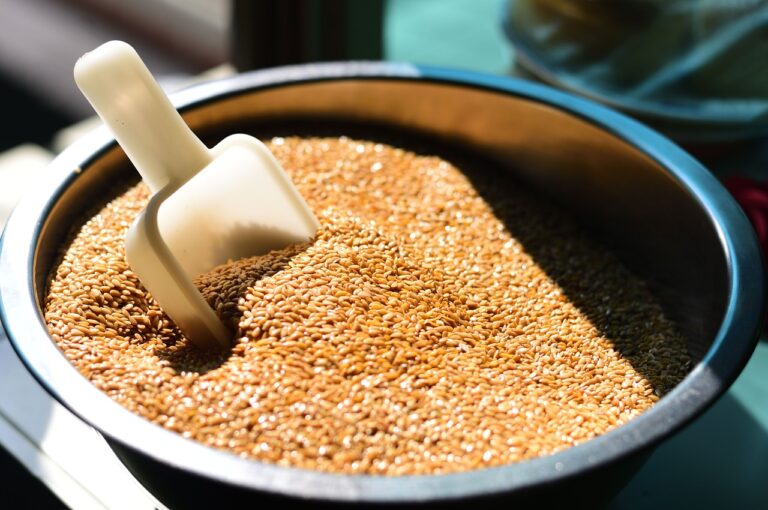The Science Behind Olive Oils Antioxidant Properties: 99 exchange login password, Laser 247 sign up, Yolo 247
99 exchange login password, laser 247 sign up, yolo 247: Olive oil has long been touted for its numerous health benefits, with its antioxidant properties being a key reason for its popularity. But what exactly makes olive oil a powerhouse when it comes to antioxidants?
In this article, we will delve into the science behind olive oil’s antioxidant properties, exploring how these compounds work and why they are important for our health.
**What are Antioxidants?**
Before we dive into the specifics of olive oil’s antioxidant properties, let’s first understand what antioxidants are. Antioxidants are compounds that help neutralize harmful free radicals in our bodies. Free radicals are unstable molecules that can cause damage to cells and contribute to various chronic diseases like cancer, heart disease, and Alzheimer’s.
**Olive Oil and Antioxidants**
Olive oil is rich in antioxidants, particularly polyphenols, which are believed to be responsible for many of its health benefits. Polyphenols are plant compounds that have been shown to have antioxidant, anti-inflammatory, and anti-cancer properties. Some of the key polyphenols found in olive oil include hydroxytyrosol, oleuropein, and tyrosol.
These polyphenols help protect our cells from oxidative stress caused by free radicals. By neutralizing these harmful molecules, polyphenols in olive oil can reduce inflammation, improve blood vessel function, and even lower the risk of chronic diseases.
**How Olive Oil’s Antioxidants Work**
Polyphenols in olive oil work as antioxidants by neutralizing free radicals and preventing them from causing damage to our cells. They do this by donating an electron to the free radical, stabilizing it and preventing it from reacting with other molecules in our body.
Additionally, polyphenols can stimulate our body’s own antioxidant defenses, such as glutathione and superoxide dismutase, further enhancing our ability to combat oxidative stress.
**Health Benefits of Olive Oil’s Antioxidant Properties**
The antioxidant properties of olive oil have been linked to a myriad of health benefits. Studies have shown that regular consumption of olive oil can help:
1. Reduce inflammation: The polyphenols in olive oil can lower levels of inflammatory markers in the body, reducing the risk of chronic diseases like heart disease and arthritis.
2. Improve heart health: Olive oil’s antioxidants can improve blood vessel function, reduce blood pressure, and lower LDL cholesterol levels, all of which are important for heart health.
3. Protect against cancer: Some studies suggest that the polyphenols in olive oil may help prevent certain types of cancer, such as breast, colon, and prostate cancer.
4. Aid in weight loss: Olive oil’s antioxidants can help increase feelings of fullness and reduce appetite, making it easier to stick to a healthy diet and maintain a healthy weight.
**Choosing the Right Olive Oil**
When it comes to reaping the benefits of olive oil’s antioxidant properties, it’s important to choose the right type of oil. Extra virgin olive oil is the best choice as it is the least processed and retains the highest levels of antioxidants. Look for oils that are cold-pressed and stored in dark glass bottles to protect the antioxidants from light and heat damage.
**Cooking with Olive Oil**
Olive oil is not only a healthy choice for drizzling over salads or dipping bread, but it is also a great option for cooking. The antioxidants in olive oil are heat-stable, meaning they can withstand high temperatures without breaking down.
For saut驮g, roasting, or baking, choose extra virgin olive oil to preserve its antioxidant properties. Avoid using olive oil for deep frying, as the high heat can degrade its antioxidants and create harmful compounds.
**Summary**
In conclusion, the antioxidant properties of olive oil are one of the main reasons why it is considered a superfood. The polyphenols in olive oil help protect our cells from oxidative damage, reduce inflammation, and lower the risk of chronic diseases. By including olive oil in your diet and choosing the right type of oil, you can harness the power of antioxidants to improve your health and well-being.
**FAQs**
1. What is the best type of olive oil for health benefits?
– Extra virgin olive oil is the best choice for its high levels of antioxidants and minimal processing.
2. Can I cook with olive oil?
– Yes, olive oil is a great option for cooking as its antioxidants are heat-stable.
3. How much olive oil should I consume daily?
– Aim for 1-2 tablespoons of olive oil a day to reap its health benefits.
4. Are all olive oils the same in terms of antioxidants?
– No, extra virgin olive oil has the highest levels of antioxidants compared to other types of olive oil.







